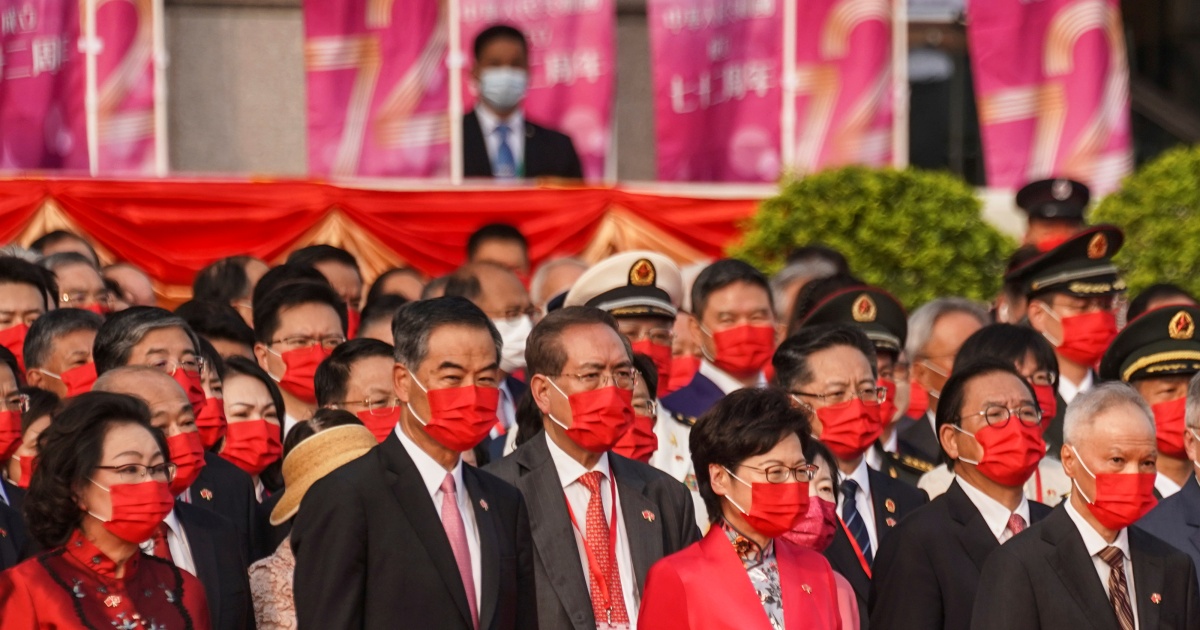Elite Chinese people seeking political asylum during the seven-decade- rule of the communist party has not been unusual but it now has turned into a mass exodus in President Xi Jinping’s regime. The harsh crackdowns on minority communities, free speech-seekers, academicians, activists, and even business tycoons and celebrities, have led to a mass exodus. Now, stringent lockdowns and government high-handedness during the Covid-19 pandemic have only aggravated the problem as it also hurts people’s livelihoods, forcing middle class to look for another country to live. Despite people being aware of the difficulties in getting asylum due to strict lockdowns, the number of applications has seen a sudden rise in the past three years.
According to the United Nations High Commissioner for Refugees, the annual number of asylum seekers from China was 15,362 in 2012. However, it continued to grow at a high rate and increased to 1,08,071 in 2020.[1] Now it appears to have crossed 1,20,000-mark this year. The total number of people applying for asylum during Jinping’s rule has been over 6,13,000. People living in the mainland and Hong Kong are making desperate attempts to get settled abroad, especially in the US, UK, Australia, and Canada. Ivy Cui, who runs an immigration agency in Shanghai, said people were in panic mode and wanted to leave China as soon as possible.
There is strong resentment in China against the draconian restrictions, authoritarian rule, and crackdowns on public dissent and freedom of speech. Jinping however has tried to bring every sector –from business to education to entertainment –under his control. This encroachment has displeased a wide section of society. Billionaires are renouncing their citizenship. More than 500 elite citizens had left China by 2020. Now many such rich businessmen are in the process to settle elsewhere as repression in the name of Covid-19 management has grown manifold.
Many Chinese celebrities including Nicholas Tse, Arthur Chen Feiyu, Kris Wu Yifan have renounced their Chinese citizenship thanks to the intensified crackdown in the entertainment industry. Safeguard Defenders, a human rights organisation, said the number of asylum seekers from China had grown at an alarming level thanks to the more oppressive system of governance. It said many Chinese moved to democratic countries, especially to the rival country US.
Searches on the internet for topics like ‘immigration’, ‘how to move to Canada’ are quite rampant in China in recent times. A new trend has emerged– ‘runxue‘, the study of how to get out of China for good. “The city we live in should make us feel safe. For whatever reason, if its citizens are constantly in a state of anxiety and feel they can no longer count on the city for their well-being and livelihood, it is betrayal,” reads a post on the social media platform WeChat. Kathy Huang, a consultant with the think-tank Council on Foreign Relations, said not just elites but even the middle class is looking for an alternative to their unsatisfactory life in China. “The sudden spike in interest indicated by the search engines and the immigration consultancies tells us that a much bigger population, most likely those in the middle class, is starting to consider it after the lockdown,” she said.
Even foreigners living in China too are leaving the country thanks to rigorous lockdowns and rising anti-west sentiments. Shanghai saw a reduction of 20 per cent, from 2,08,000 in 2011 to about 1,63,000 in 2021 while Beijing witnessed a decline of 40 per cent to around 63,000 foreign residents in a decade. The mass exodus of Chinese residents has alarmed the Jinping government, and it has started taking measures to stop it. An investment migration visa, which used to be the easiest way to leave China, has been made tougher to get now. Even those already settled are being forced to return to China using the extradition tool or by just threatening family members. However, distressed Chinese people are trying to find ways to leave China and live a better, democratic life. “I’ve thought about leaving China several times in the past and gave up, but now I’m determined to leave,” said Harry Hu, who owns a restaurant in Shanghai.

Leave a Reply